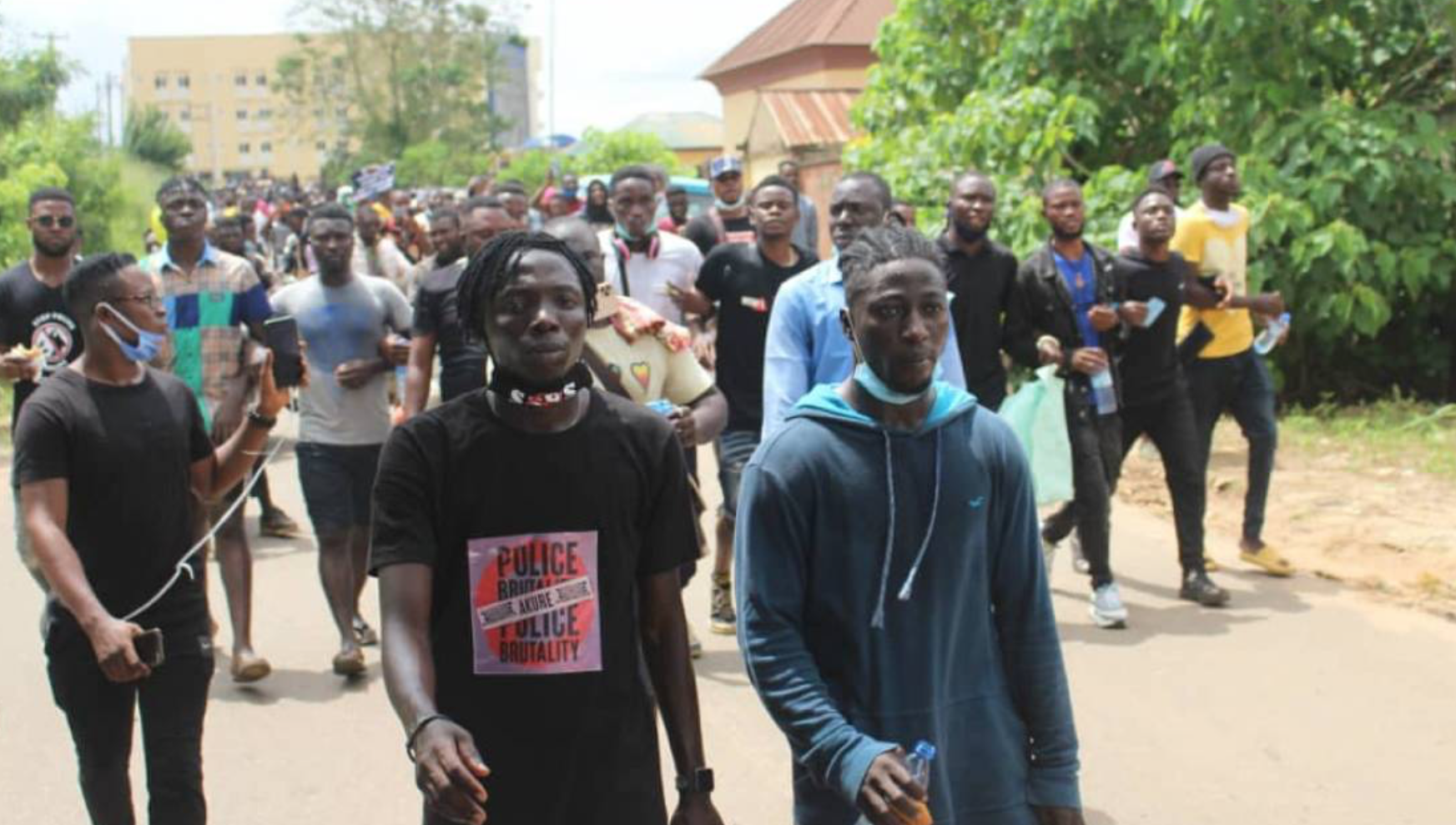
Protesters have continued to fill the streets of Lagos in defiance of a round-the-clock curfew imposed after the Oct. 20 Lekki Massacre, when soldiers and police fired on demonstrators who were occupying a toll bridge in the city’s Lekki district. Authorities initially dismissed the massacre as “fake news,” but now acknowledge that at least 38 were killed by security forces in Lagos that day. The massacre only succeeded in escalating what had been a largely peaceful protest campaign against police brutality into a general uprising. Several buildings were set on fire or ransacked, including banks, the TVC television headquarters, port facilities, and the palace of the Oba of Lagos, the traditional ruler of the city. Protests have also spread to Akure, the Ondo state capital, and other cities.
Two days after the massacre, President Muhammadu Buhari appeared on TV to appeal for “understanding and calm,” but also admonished the international community to “know all the facts” before condemning his government. In an unsubtle threat, he warned: “This government will not allow anybody or [any] groups to disrupt the peace of the nation.” He urged protesters to “resist the temptation of being used by some subversive elements to cause chaos with the aim of truncating our nascent democracy.” Nigerian netizens are dismissing his address as “12 minutes of nonsense.”
At least 56 people have been killed across Nigeria since nationwide protests broke out on Oct. 8 under the hashtag #EndSARS—a reference to the Special Anti-Robbery Squad, an elite police unit accused of killings, corruption and other abuses. As the protests mounted, Buhari pledged to disband the SARS, but protesters are pressing demands for a more sweeping reform of the security forces. (Sahara Reporters, Sahara Reporters, Sahara Reporters, The Africa Report, SkyNews, AP, Reuters)
Photo: Sahara Reporters





Nigeria: arrested ex-presidential candidate denied bail
The Abuja magistrate court denied bail to former Nigerian presidential candidate and activist Omoyele Sowore on Jan. 5, following Sowore’s arrest on New Year’s Eve during a candlelight protest against bad governance.
Sowore is the founder of Sahara Reporters, an online news agency that aggressively reports on corruption, humans rights abuses and political misconduct. Sowore is also a US permanent resident and a former candidate for the Nigerian presidency. (Jurist)